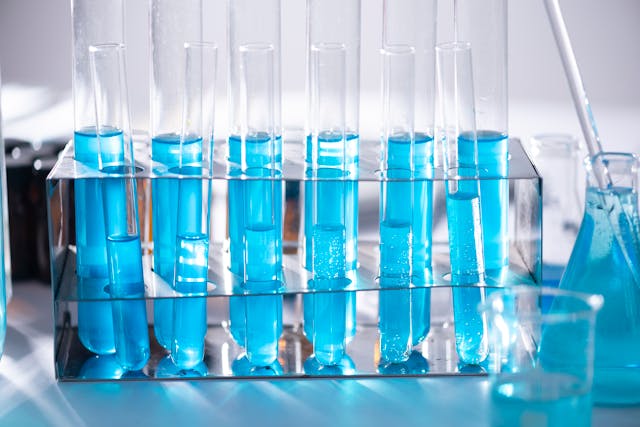Whether you’re opening up your own lab, or have recently taken on the position of laboratory manager, then you are likely aware that it’s a big responsibility, one that has to be managed with care. As such, here, we’re going to look at some of the keys to managing a successful laboratory.
Keep It Organized
A well-organized laboratory is the cornerstone of efficiency and safety. Proper organization ensures that equipment, chemicals, and samples are stored systematically, reducing the risk of contamination, accidents, or loss in the production of medicine or research. Start by implementing a labeling system for all materials, including chemicals, reagents, and samples. Shelves and storage spaces should be clearly marked, and an inventory management system should be used to track supplies, ensuring that stock levels are maintained and outdated materials are disposed of properly. Workspaces should be kept clean and free of clutter, with designated areas for specific tasks to prevent cross-contamination. Regular audits and cleanups can help maintain this organization, ensuring that the lab remains a safe and efficient environment for all staff.
Hire And Train The Right Team
The success of any laboratory heavily depends on the skills and competence of its staff. Hiring the right team starts with identifying the specific qualifications and experience required for each role. It’s essential to recruit individuals who not only possess the necessary technical skills but also fit well with the laboratory’s culture and work ethic. Once the team is in place, continuous training is crucial. Training programs should cover both technical aspects and safety protocols, ensuring that all staff are up-to-date with the latest laboratory practices and technologies. Regular workshops, refresher courses, and cross-training opportunities can help keep the team engaged and informed, fostering a culture of continuous improvement.
Finding The Right Suppliers
Reliable suppliers are critical to the smooth operation of a laboratory. The quality of materials and equipment directly impacts the results and safety of laboratory work. It’s essential to establish relationships with reputable suppliers like Science.bio who can consistently deliver high-quality products on time. When selecting suppliers, consider factors such as product quality, cost, reliability, and customer service. It’s also wise to have backup suppliers in place to avoid disruptions in case of supply chain issues. Regularly reviewing supplier performance and maintaining open communication can help ensure that your laboratory has a steady supply of the materials and equipment it needs.
Maintain High-Quality Assurance Standards
High-quality assurance standards are essential to ensure the accuracy and reliability of laboratory results. Implementing a robust QA program involves regular calibration of equipment, validation of methods, and thorough documentation of all processes. Standard operating procedures should be developed and strictly followed to ensure consistency in laboratory practices. Regular internal and external audits can help identify potential issues and areas for improvement, ensuring that the laboratory maintains compliance with industry standards and regulations. Staff should be trained on the importance of QA and encouraged to take ownership of quality in their work. A commitment to high-quality assurance not only enhances the credibility of the laboratory but also protects its reputation and ensures the safety of its results.
Any laboratory requires careful supervision and conscious decision-making from the one who is leading it. The examples above are just some of the ways you can ensure that you are providing just that.
Thomas Martin
More from Thomas Martin
Having Home Insurance Is A Great Investment in Your Health: Here Are Four Reasons Why
Read More
You may also like

5 Reasons Why Basic First Aid Knowledge Is Essential

CBD Uncovered: 6 Mind-Blowing Benefits You Need To Know

Expert Tricks And Tips For Beating Insomnia While Pregnant

